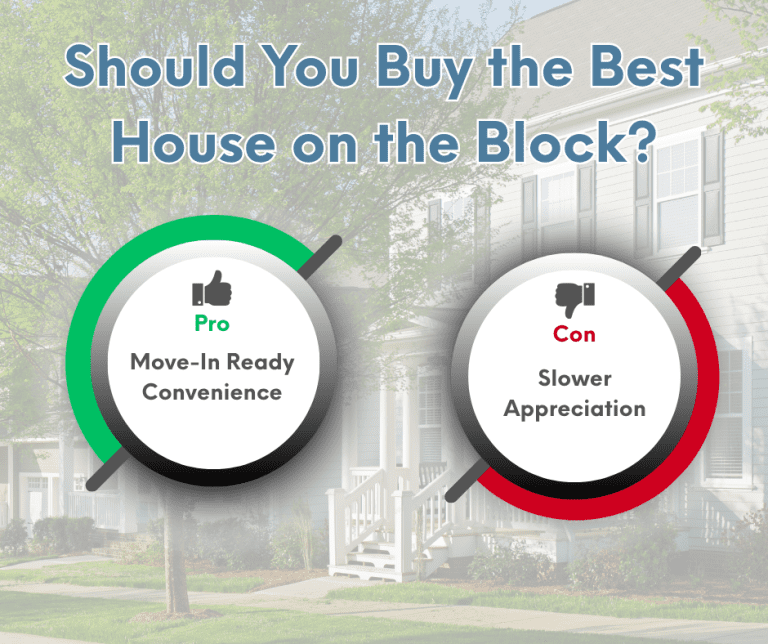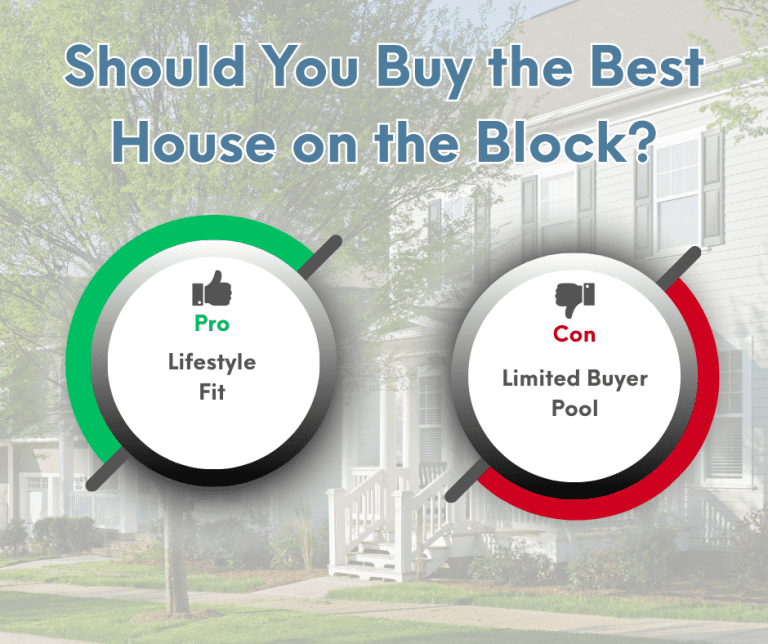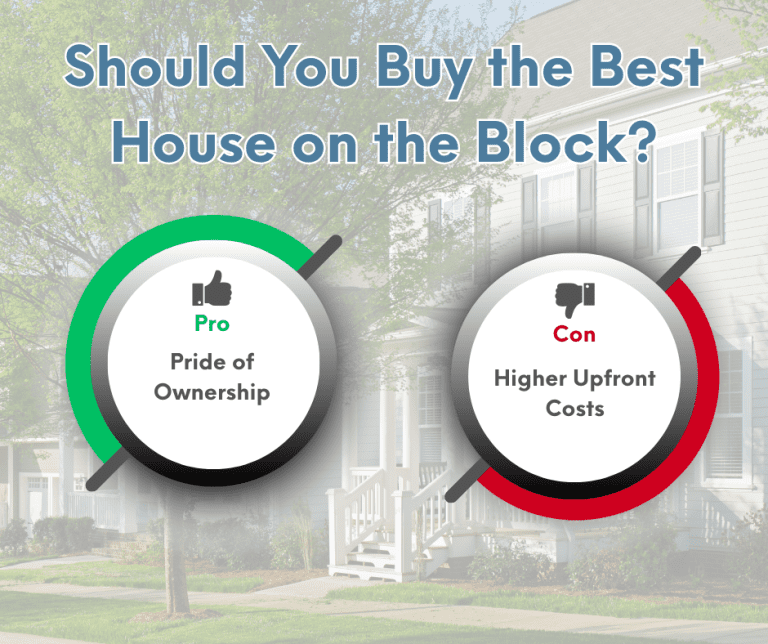Should You Buy the Best Home on the Block?
For decades, homebuyers have heard the warning: “Don’t buy the best home in the neighborhood.” The reasoning is simple — that top-priced house may not appreciate as quickly as the homes around it, and when it comes time to sell, you might have trouble finding buyers willing to pay top dollar.
But is that still true in today’s real estate market? The answer is more nuanced. Let’s break down the pros and cons, and help you decide if buying the “best house on the block” is the right move for your lifestyle or investment goals.

✅ The Pros of Buying the Best Home in the Neighborhood
1. Move-In Ready Convenience
Often, the best home on the block is updated, spacious, and loaded with desirable features. You won’t need to spend extra time or money on renovations, which can be appealing if you want a turnkey property.
2. Lifestyle Fit
If the home fits your season of life — for example, extra bedrooms for a growing family, a detached shop for hobbies, or an office space for remote work — then the benefits may outweigh traditional “investment rules.”
3. Pride of Ownership
There’s also an emotional return. Living in a home that’s the stan


⚠️ The Cons of Buying the Best Home on the Block
1. Slower Appreciation
Historically, the most expensive home in a neighborhood appreciates more slowly than lower-priced homes nearby. If surrounding homes don’t keep up in value, yours could be harder to resell at the price you want.
2. Limited Buyer Pool
When you eventually sell, you may have fewer interested buyers. People looking in that neighborhood often expect a certain price range, and your higher-end property may sit on the market longer.
3. Higher Upfront Costs
You’ll likely pay more to buy the best home, which ties up more of your budget. If you’re thinking strictly as an investor, you might get a stronger return by purchasing a more modest home in a growing area.
🔄 Lifestyle Fit vs. Investment Strategy
When deciding whether to buy the best home on the block, the key is to identify your primary goal:
Buying for Lifestyle: If this is your long-term home, focus on whether the property truly fits your needs and stage of life. Comfort, convenience, and quality of life can justify paying more.
Buying for Investment: If your main concern is resale value and return on investment, consider whether the home’s price point makes sense compared to surrounding properties. Investors often prefer “the worst house on the best block” because of its potential for value growth.
🏡 Final Thoughts
There’s no one-size-fits-all answer to whether buying the best home on the block is a good idea. It depends on your goals, your financial picture, and your vision for the future.

If the property meets your lifestyle needs and you plan to stay long-term, the benefits may outweigh the risks. But if your focus is strictly investment, it’s worth considering other homes in the area that offer more potential for appreciation.
The bottom line: Work closely with a local real estate expert who understands neighborhood trends, resale values, and your unique goals. They’ll help you balance both lifestyle and investment factors to make the best decision.
Ready to start your home search? We’ll help you spot the right opportunities — whether it’s the best house on the block or the hidden gem down the street.

